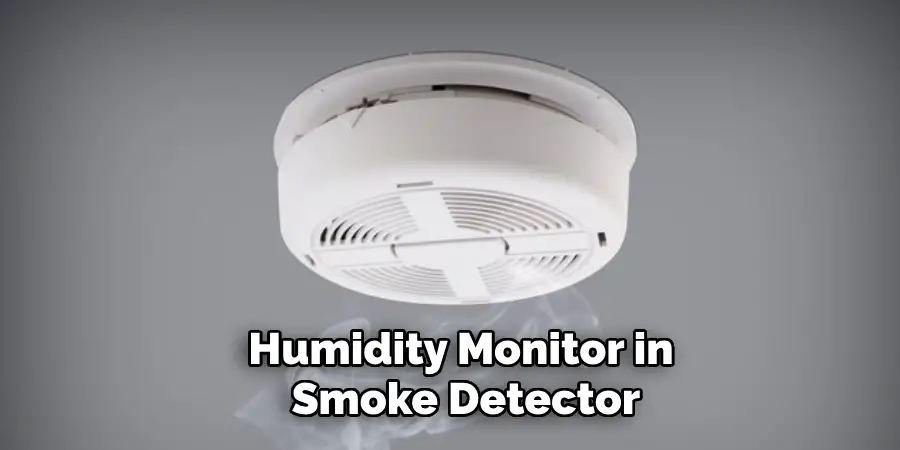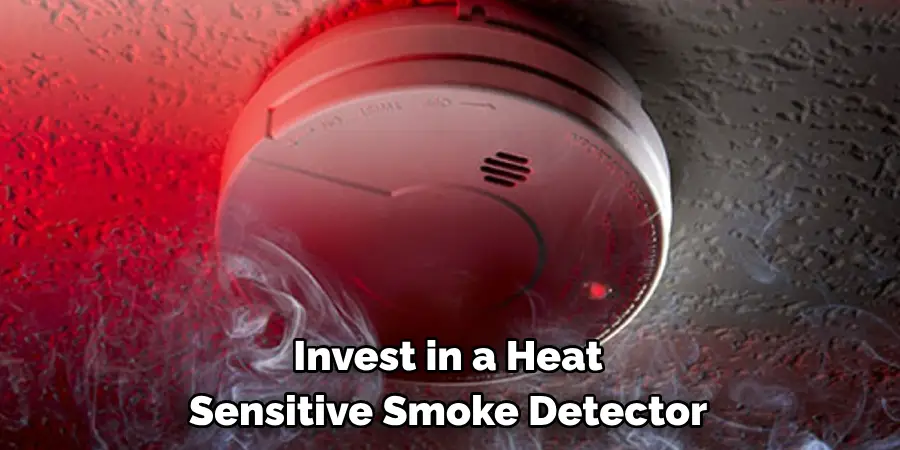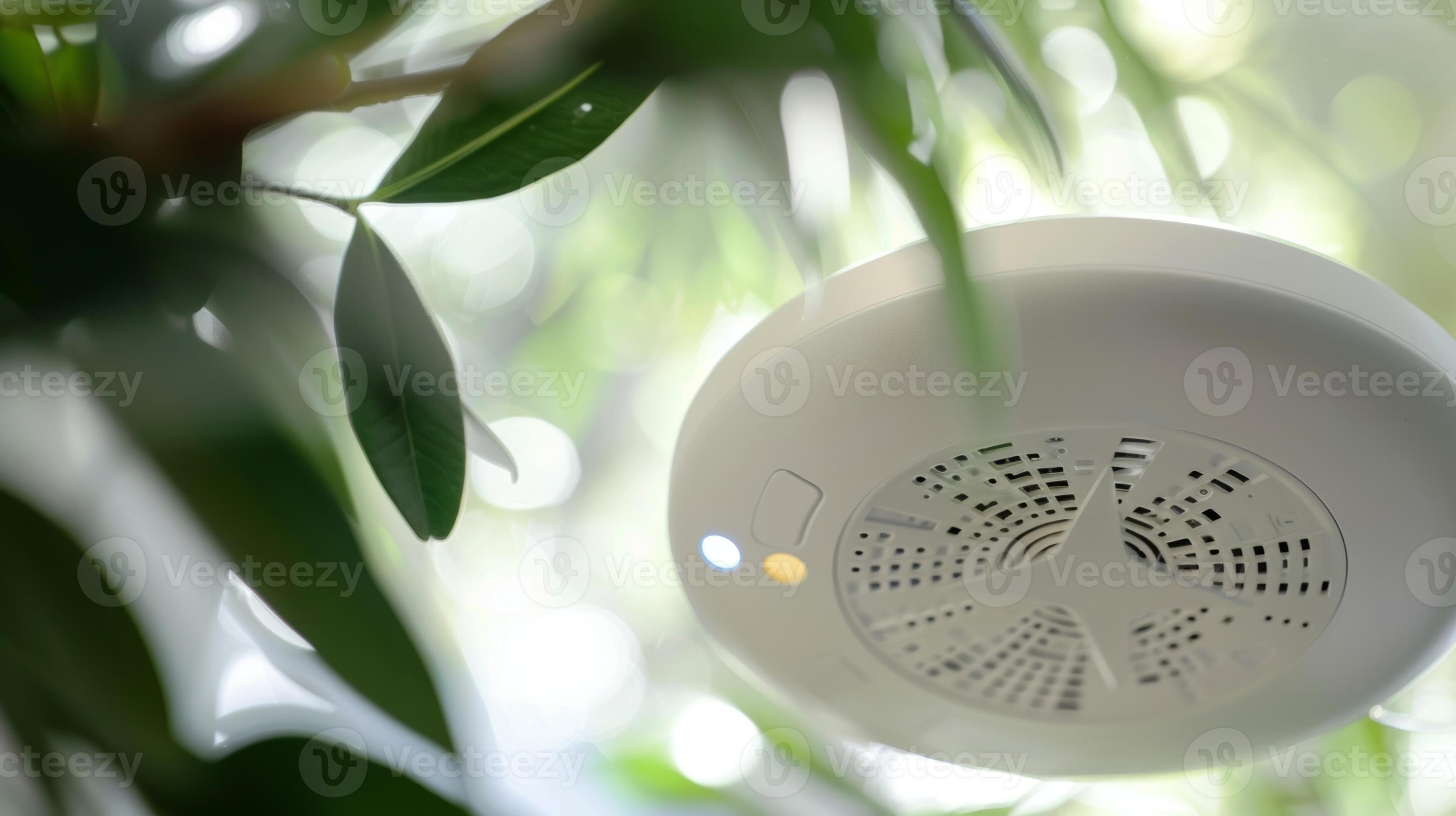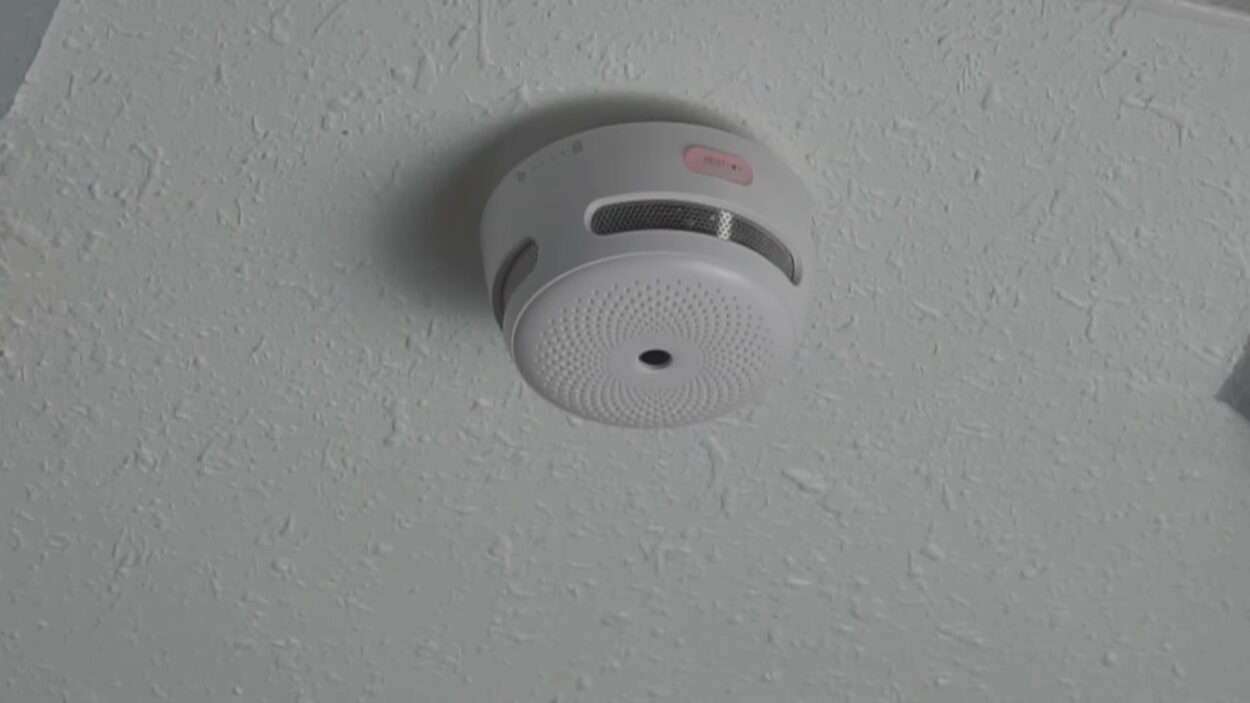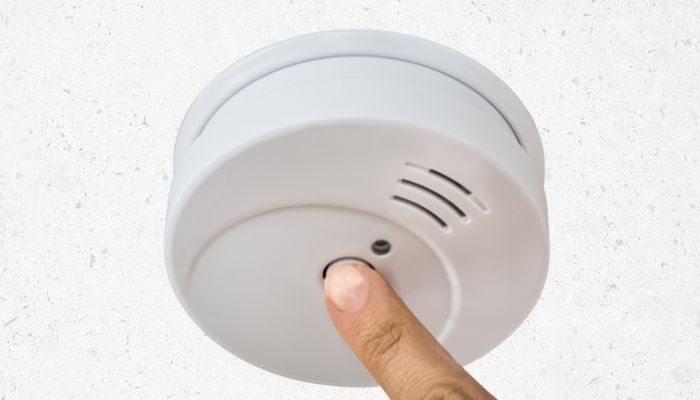Can Humidity Set Off A Smoke Detector
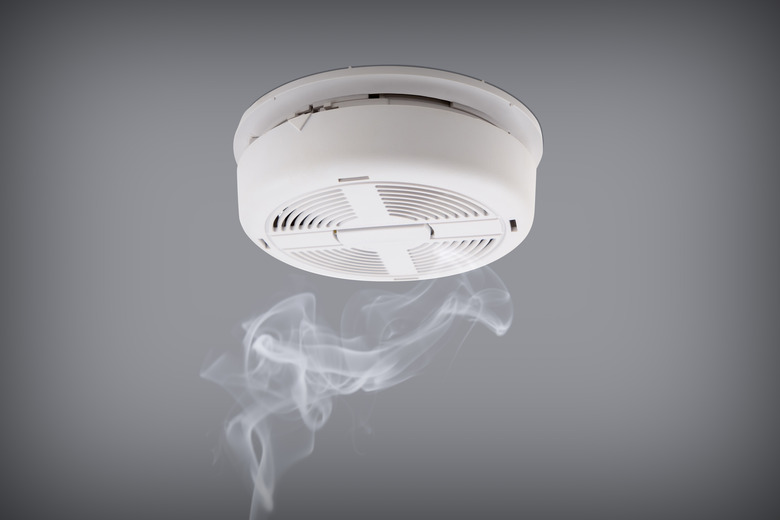
Humidity is a common household concern, and understanding its effects on our safety devices is crucial. A frequent question that arises is: Can humidity set off a smoke detector? The answer, while not a simple "yes" or "no," requires understanding the different types of smoke detectors and how they interact with moisture.
Understanding Smoke Detectors
To address the question of humidity affecting smoke detectors, we must first understand the two main types of smoke detectors commonly found in homes: ionization smoke detectors and photoelectric smoke detectors. Each type uses a different technology to detect smoke, and therefore, reacts differently to environmental factors like humidity.
Ionization Smoke Detectors
Ionization smoke detectors work using a small amount of radioactive material (typically Americium-241) placed between two electrically charged plates. This radioactive material ionizes the air, creating a steady flow of electrical current. When smoke particles enter the detector, they disrupt this current flow. This disruption triggers the alarm.
Think of it like a tiny electrical bridge. The radioactive material keeps the bridge stable. Smoke particles act like a weight on the bridge, causing it to collapse and setting off the alarm.
Photoelectric Smoke Detectors
Photoelectric smoke detectors operate using a light beam and a light sensor. The detector contains a light source that shines a beam of light across a chamber. The light beam is directed away from the light sensor under normal conditions. When smoke enters the chamber, it scatters the light, and some of the scattered light hits the light sensor. This triggers the alarm.
Imagine a flashlight shining in a dark room. You can't see the beam itself. Now, imagine dust floating in the air. The dust particles scatter the light, making the beam visible. Photoelectric detectors work on a similar principle.
The Relationship Between Humidity and Smoke Detectors
Now that we understand how these smoke detectors work, we can explore how humidity affects them. The key takeaway is that high humidity *can* trigger false alarms, particularly in ionization smoke detectors.
How Humidity Affects Ionization Smoke Detectors
Ionization smoke detectors are more susceptible to false alarms caused by humidity than photoelectric detectors. Here's why:
- Water Vapor Conductivity: High humidity means there's more water vapor in the air. Water vapor, especially when carrying impurities, can become conductive. This increased conductivity can, in some instances, mimic the effect of smoke particles disrupting the electrical current in the ionization chamber.
- Condensation: In very humid environments, condensation can form inside the detector. This condensation can create a continuous path for electrical current, effectively short-circuiting the ionization chamber and triggering the alarm.
- Dust and Particle Attraction: High humidity can cause dust and other airborne particles to clump together and become heavier. These heavier particles are more likely to be drawn into the ionization chamber due to electrostatic forces, further disrupting the current flow.
It's important to note that not all ionization smoke detectors are equally susceptible to humidity. The design and sensitivity of the detector play a significant role. Older models tend to be more prone to false alarms due to less sophisticated circuitry.
How Humidity Affects Photoelectric Smoke Detectors
Photoelectric smoke detectors are generally less prone to false alarms caused by humidity. However, they are not completely immune.
- Condensation on the Lens: In extremely humid conditions, condensation can form on the lens of the light source or the light sensor. This condensation can scatter or block the light beam, potentially triggering a false alarm.
- Mold Growth: High humidity promotes mold growth. Mold spores in the air can enter the detector and, in sufficient quantities, scatter the light and trigger an alarm.
- Fog or Steam: Direct exposure to fog or steam (like from a shower) can easily trigger a photoelectric smoke detector. This is because fog and steam consist of water droplets that are very effective at scattering light.
While photoelectric detectors are generally better at distinguishing between smoke and water vapor, it's still important to be mindful of excessive humidity levels, especially in bathrooms and kitchens.
Factors That Increase the Risk of False Alarms
Several factors can increase the likelihood of humidity triggering a false alarm in your smoke detector:
- Location: Smoke detectors installed in bathrooms, kitchens, and laundry rooms are more likely to experience false alarms due to higher humidity levels in these areas.
- Age of the Detector: Older smoke detectors are often more sensitive and prone to malfunctions, making them more susceptible to false alarms caused by humidity.
- Cleanliness: A dirty smoke detector is more likely to be affected by humidity. Dust and debris inside the detector can attract moisture and exacerbate the problem.
- Poor Ventilation: Homes with poor ventilation tend to have higher humidity levels, increasing the risk of false alarms.
- Type of Detector: As discussed earlier, ionization smoke detectors are generally more susceptible to humidity-related false alarms than photoelectric detectors.
Troubleshooting and Prevention
If you're experiencing frequent false alarms due to humidity, here are some steps you can take to troubleshoot and prevent the issue:
- Identify the Source: Try to pinpoint the source of the humidity that's triggering the alarm. Is it the shower, the kitchen, or a general lack of ventilation?
- Improve Ventilation: Increase ventilation in the affected areas by opening windows, using exhaust fans, or installing a dehumidifier.
- Relocate the Detector: If possible, move the smoke detector to a location that is less prone to humidity. Avoid placing detectors directly above or near sources of steam or moisture.
- Clean the Detector Regularly: Use a vacuum cleaner with a brush attachment to gently remove dust and debris from the detector. Follow the manufacturer's instructions for cleaning.
- Replace the Detector: If the detector is old or frequently malfunctions, consider replacing it with a newer model, preferably a photoelectric detector.
- Test the Detector Regularly: Even if you're not experiencing false alarms, it's important to test your smoke detectors regularly (at least once a month) to ensure they are functioning properly.
- Consider a Dual-Sensor Detector: Some smoke detectors combine both ionization and photoelectric sensors. These "dual-sensor" detectors are designed to be less prone to false alarms while still providing comprehensive fire detection.
Choosing the Right Smoke Detector
When selecting smoke detectors for your home, consider the specific needs of each area. For example, photoelectric detectors are often recommended for kitchens and bathrooms, where steam and cooking fumes are common.
Here's a quick guide:
- Bedrooms: Either ionization or photoelectric detectors are suitable.
- Hallways: Either ionization or photoelectric detectors are suitable.
- Kitchens: Photoelectric detectors are generally recommended to reduce false alarms from cooking.
- Bathrooms: Photoelectric detectors are generally recommended to reduce false alarms from steam.
- Laundry Rooms: Photoelectric detectors are generally recommended due to lint and moisture.
The Importance of Functioning Smoke Detectors
Despite the potential for false alarms, it's absolutely crucial to maintain functioning smoke detectors in your home. Smoke detectors save lives by providing early warning of a fire, giving you and your family time to escape safely.
Never disable or remove a smoke detector because of false alarms. Instead, take steps to address the underlying cause of the false alarms, such as improving ventilation or cleaning the detector.
In Conclusion
Yes, humidity can set off a smoke detector, particularly ionization smoke detectors. However, by understanding the different types of detectors, identifying the factors that contribute to false alarms, and taking preventative measures, you can minimize the risk of nuisance alarms while ensuring that your home remains protected from fire. Always prioritize safety and maintain functioning smoke detectors in your home.
